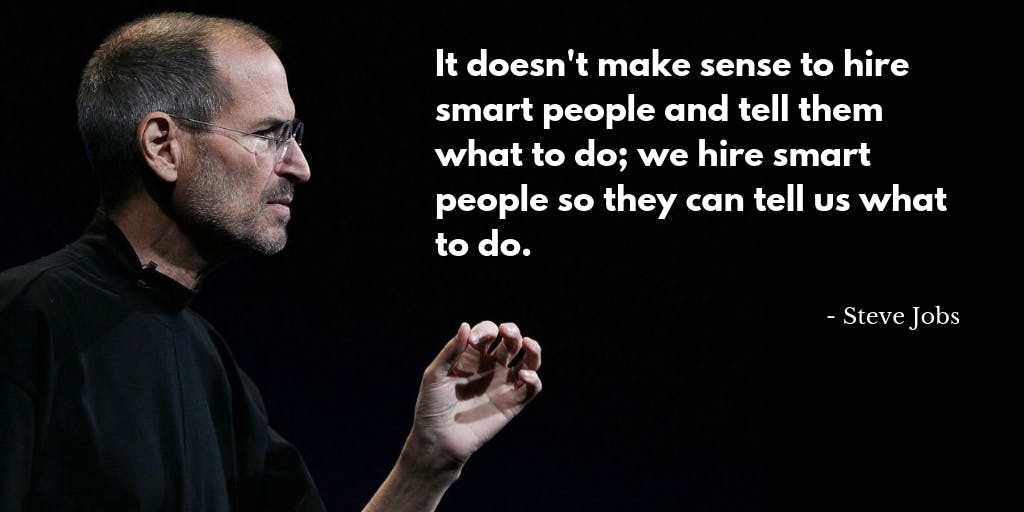31,746 reads
Hire Smart People and Let Them Tell You What To Do — Just Like Steve Jobs Did
by
September 13th, 2018
Audio Presented by
About Author
Head of Marketing
Comments
TOPICS
Related Stories
104 Stories To Learn About Hr
Oct 28, 2023
104 Stories To Learn About Hr
Oct 28, 2023
